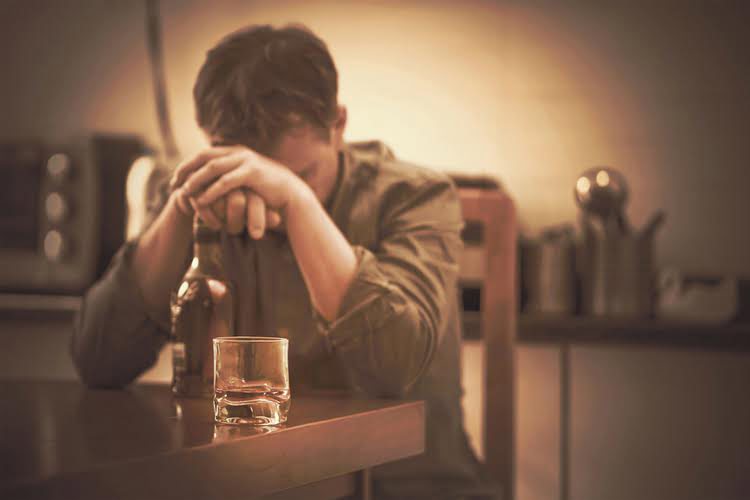- By My Soul Market Manager
- |
- Sober Living
- |
It does mean, however, that you will understand the negative repercussions of having even just one drink. Just as importantly, you will be able to turn down that first drink and move along. While the recovery period may be challenging, it’s also filled with milestones that can transform your life into one that’s better than you could have previously imagined. Clinical evidence suggests that the most common causes of relapse during this stage are neglecting self-care or not attending self-help groups. During the repair stage, taking care of yourself is paramount.
- I was tired, my back was hurting a little but basically I was grumpy and not really connected to my awareness.
- Alcohol abuse can lead to lasting neurochemical changes in the brain, including altered dopamine and GABA activity, which affect pleasure, relaxation, and inhibition.
- This means that their bodies can not function optimally without the usual amount of alcohol in the system.
- Though those who live with an alcohol abuse medical condition feel a powerful pull to drink heavily and more often, they might not feel as reliant on alcohol as those with a dependency.
- Luckily, practicing abstinence can keep you on the beneficial journey of long-term recovery.
How To Let Go of a Toxic Loved One
If they are in an uncontrollable state then get in touch with us and we can advise you on the best course of action. To help a loved one who has relapsed, it is important to remember everything you learned while they were undergoing alcohol treatment. Addiction is not simply a physical dependence – It is a multi-faceted condition with various underlying emotional and psychological causes and triggers. Alcohol relapses can and do happen and so being able to put yourself in their shoes is crucial to helping your loved one bounce back. “If you feel like you’ve been deprived, there is a natural instinct to push back or even celebrate what you’ve achieved,” she says. That can quickly devolve into all-or-nothing thinking, she explains, or the idea that if you’re no longer dry, you might as well get plastered.

What does it feel like to go back to drinking after quitting for a while?

If you are an alcoholic, drinking in moderation is not a reality. These negative repercussions can be avoided by dispelling the myth that alcoholics are able to drink in moderation. There are plenty of ways to enjoy social situations involving alcohol without drinking.
- Each relapse episode can strengthen the person’s belief that sobriety is not possible for them.
- A person who misuses alcohol will feel like they are not able to function in their daily life without the use of alcohol.
- The question of whether a recovering alcoholic can ever drink again sparks intense debate and emotional responses.
- It involves drinking with restraint, setting clear limits, and avoiding excessive consumption.
- Detoxification is often the first step in treating alcoholism, but you may have to repeat it several times before you can stop drinking.
How can I navigate social situations without alcohol?
The information we provide is not intended to be a substitute for professional medical advice, diagnosis or treatment. It should not be used in place of the advice of your physician or other qualified healthcare provider. It should not be used in place of the advice of your physician or other qualified healthcare providers.
In such cases, moderate drinking may be considered as an alternative approach. However, moderation requires strict adherence to predetermined limits on alcohol consumption and ongoing monitoring of drinking behaviors. Moreover, alcohol addiction itself alters brain chemistry and functioning, further compromising decision-making abilities. This underscores the importance of seeking support and guidance from healthcare professionals when navigating decisions about alcohol consumption post-treatment.
While you may still relapse even when you know what to expect, you will be better prepared to deal with it. Each person’s journey through alcohol withdrawal and recovery is unique. Factors such as personal history, underlying health conditions, mental health, and support systems all contribute to the decision of whether to drink again. It is crucial to consult a medical professional or addiction specialist who can evaluate your specific situation and provide tailored guidance. The debate between abstinence and moderation as approaches to alcoholism recovery is ongoing. Abstinence, which entails complete avoidance of alcohol, is the cornerstone of many recovery programs and is considered the safest option for individuals with a history of alcohol addiction.
Can a Recovering Alcoholic Ever Drink Again? Prioritizing Sobriety Over Risk
But the best strategy is to deal with the thoughts of alcohol, not the consequences of alcohol use. There are individual, group, and family therapies for this purpose. All of them help motivate you to live a sober life, teach you how to cope with momentary weaknesses and say “no” when people around you suggest having “just one drink”. The challenge of this stage is to essentially develop and maintain healthy life skills that will serve you for a lifetime. An exciting part of this period is that it can lead you to a happier life full of welcomed change and constant improvement. During the recovery stage, it’s not uncommon to feel temporarily worse.
Abstinence from alcohol has been proven to be the most effective way to maintain sobriety, especially for recovering alcoholics. A common concern is Aetna rehab coverage and other insurance options. Many plans cover medication-assisted treatment and rehab programs.
Moderate Drinking vs. Abstinence
For example, a study in Biological Psychiatry argues that “exaggerated reward center stimulation” puts some of us at greater risk than others — a predisposition that doesn’t disappear after a few months or years. And while many philosophies about treatment exist, collective experience has consistently shown that once we’ve developed AUD, drinking again is a bad idea. Time and time again people have fallen back into the same trap and ended up where they were before — or worse. Drinking again after sobriety can also strain your relationships with friends and family. Loved ones who’ve supported you through your journey to recovery may feel hurt, betrayed, or worried about your well-being.
Can an alcoholic ever drink “normally” again?
Once going back to drinking after being sober you’ve had one drink, the compulsion to get drunk will return. The best way to avoid the compulsion to drink is complete abstinence. There are some who argue recovering alcoholics should be permitted to drink.
Often, they’ll put undue pressure on you to do things “right”, even when that’s not working for you personally. All of this can sap your motivation to stay sober and make you feel shame or guilt if you relapse. To avoid this, you should go into recovery and sobriety with your eyes wide open. Get your information Sober living house from reliable sources like the National Institute on Alcohol Abuse and Alcoholism, the CDC, the WHO, or addiction experts. This will prepare you for what to expect from your life after treatment and destigmatize relapse; with more understanding, you’ll better be able to recognize, prevent, and potentially deal with a relapse.

Leave a Reply